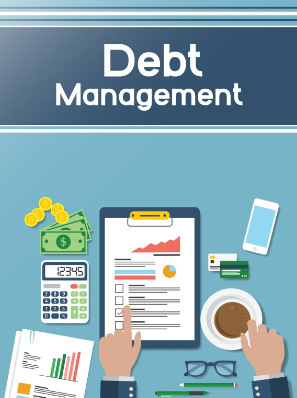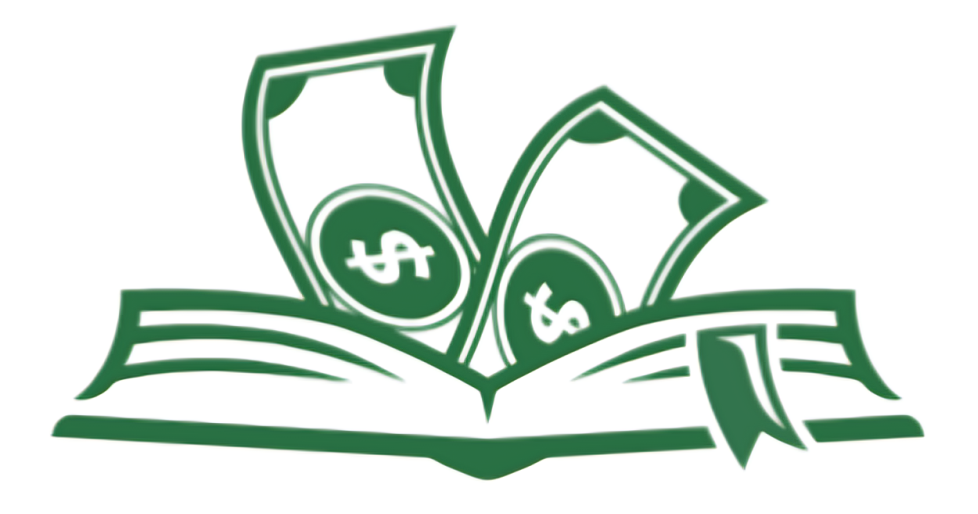Learn all about debt management, including how it works, effective strategies for managing debt, distinguishing between good and bad debt, and the top 5 types of debt to avoid for financial well-being.
Debt management is the process of taking control of your debts by creating a plan to effectively handle and reduce what you owe. This involves organizing your finances, setting budgets, and prioritizing debt repayment to work towards becoming debt-free. Debt management aims to alleviate financial stress and improve your overall financial situation by strategically managing your debt obligations.
Access exclusive content on the moneymortal platform and stay informed with valuable updates.

What is Debt Management
Debt management involves the process of organizing and controlling your debts through effective financial planning and budgeting. The primary aim of a debt management plan is to utilize these strategies to reduce your existing debt and work towards eliminating it altogether.
You have the option to devise a debt management plan independently or seek credit counseling for assistance with your plan. Each approach has its own set of pros and cons. Creating your own plan is straightforward and gives you full control, but at times, having external support or accountability from a partner can be beneficial.
Key Takeaway points
- Take stock of all debts, interest rates, and repayment terms to develop a clear picture of your financial obligations.
- Create a detailed budget that allocates specific amounts towards debt repayment while covering essential expenses.
- Focus on paying off high-interest debts first to minimize interest costs and accelerate overall debt reduction.
- Cut unnecessary expenses to allocate more funds towards debt repayment.
How Debt Management Works
Debt management works by helping individuals or organizations organize and address their outstanding debts in a structured and manageable way. The process typically starts with a thorough assessment of the existing debts, including identifying the total amount owed, interest rates, and minimum monthly payments. This assessment helps in understanding the full scope of the debt situation.
Once the debts are assessed, a debt management plan (DMP) is created. This plan outlines strategies for repayment based on available financial resources. It may involve negotiating with creditors to lower interest rates, consolidate debts into more manageable payments, or set up a structured repayment schedule. The goal of the debt management plan is to streamline debt repayment, making it more feasible and efficient for the debtor.
Implementing a debt management plan requires discipline and commitment. It involves adhering to a budget that allocates specific amounts towards debt repayment each month. By consistently making payments according to the plan, individuals can gradually reduce their outstanding debts and eventually become debt-free. Throughout the process, regular reviews and adjustments may be necessary to accommodate changes in financial circumstances or unexpected expenses. Ultimately, debt management provides a structured approach to tackling debts and regaining financial stability.
How to Manage Debt
- Assess Your Debt: Begin by understanding the full extent of your debts. Make a list of all outstanding balances, including credit card debts, loans, and other financial obligations. Note down the interest rates, minimum monthly payments, and due dates for each debt.
- Create a Budget: Develop a realistic budget that accounts for your income and expenses. Allocate a portion of your income towards essential expenses like rent, utilities, groceries, and transportation. Allocate another portion specifically for debt repayment.
- Prioritize High-Interest Debts: Identify debts with the highest interest rates (like credit card debts) and prioritize paying them off first. By tackling high-interest debts, you can minimize interest payments and save money in the long run.
- Make Timely Payments: Always make payments on time to avoid late fees and negative impacts on your credit score. Set up reminders or automatic payments to ensure you never miss a payment deadline.
- Cut Unnecessary Expenses: Review your spending habits and identify areas where you can cut back. Consider reducing discretionary expenses such as dining out, entertainment, or subscription services to free up more funds for debt repayment.
- Consider Debt Consolidation: If you have multiple debts, explore options for debt consolidation. This involves combining multiple debts into a single loan with a lower interest rate, making repayment more manageable.
- Negotiate with Creditors: Reach out to your creditors to discuss possible options for repayment. They may be willing to negotiate lower interest rates, waive fees, or offer alternative repayment plans based on your financial situation.
- Seek Professional Help if Needed: If you’re struggling to manage your debts on your own, consider seeking assistance from credit counseling agencies or debt management services. These organizations can provide personalized guidance and support in creating a debt repayment plan.
- Stay Committed: Managing debt requires consistency and discipline. Stick to your budget, track your progress, and celebrate small victories along the way. Stay motivated by visualizing the financial freedom you’ll achieve once your debts are paid off.
Good vs Bad Debt
| Good Debt | Bad Debt |
|---|---|
| Used to invest in assets | Used for non-essential items |
| Can increase in value over time | Items purchased quickly lose value |
| Examples: Mortgage, Student Loans | Examples: Credit card debt, Payday loans |
| Typically has lower interest rates | Often comes with high interest rates |
| Helps achieve important goals | Can lead to financial stress and difficulties |
| Examples: Buying a home, Education | Examples: Shopping sprees, Luxury items |
Top 5 Types of Debt that we have to avoid
- High-Interest Credit Card Debt: Credit card debt can be one of the most costly forms of borrowing due to high interest rates. Carrying a balance on credit cards can lead to substantial interest charges, making it challenging to pay off the debt quickly. It’s advisable to use credit cards responsibly and pay off the balance in full each month to avoid accumulating high-interest debt.
- Payday Loans and Cash Advances: Payday loans typically come with extremely high interest rates and fees. These short-term loans are often used by individuals who need immediate cash but can trap borrowers in cycles of debt due to their high cost. It’s important to explore alternatives to payday loans, such as borrowing from family or friends or seeking financial assistance from non-profit organizations.
- Auto Loans with Long Terms and High Interest: Taking out a car loan with a lengthy repayment term and high interest rate can result in paying significantly more for the vehicle over time. It’s wise to shop around for favorable auto loan terms and consider a shorter loan duration to minimize interest costs.
- High-Risk Personal Loans: Personal loans obtained from lenders targeting individuals with poor credit or offering loans without proper credit checks often come with exorbitant interest rates. These loans can be risky and lead to financial distress if not carefully managed. Before considering a personal loan, explore options with reputable lenders and assess the terms and conditions carefully.
- Debt Used for Non-Essential or Depreciating Purchases: Taking on debt to finance non-essential or depreciating purchases, such as luxury items, vacations, or electronics, can lead to regrettable financial consequences. These types of debts do not contribute to long-term financial well-being and can hinder progress towards important financial goals.
Conclusion
Debt management is a vital aspect of personal finance that empowers individuals to take control of their financial future. By implementing effective debt management strategies, such as creating a realistic budget, prioritizing debt repayment, and exploring options to reduce interest rates, individuals can work towards becoming debt-free and achieving financial stability. Debt management not only helps in suffering financial stress but also improves creditworthiness over time, enabling better access to loans and financial opportunities in the future. It’s important to approach debt management with discipline, consistency, and a willingness to make necessary financial adjustments. By making informed financial decisions and staying committed to a debt management plan, individuals can pave the way towards a brighter and more secure financial future.
FAQ’s
What is Debt Management?
Debt management involves strategies and techniques to effectively handle and reduce debt. It includes creating a plan to repay debts systematically, negotiating with creditors for better terms, and making budget adjustments to allocate funds towards debt repayment.
Why is Debt Management Important?
Debt management is important because it helps individuals regain control over their finances and reduce financial stress caused by debt. It enables people to pay off debts efficiently, avoid high-interest charges, and improve their credit score over time.
How Can I Create a Debt Management Plan?
To create a debt management plan, start by listing all your debts, including amounts owed, interest rates, and minimum payments. Evaluate your income and expenses to determine how much you can allocate towards debt repayment each month. Prioritize high-interest debts first while making minimum payments on other debts. Consider consolidating debts or negotiating with creditors for better terms if possible.
